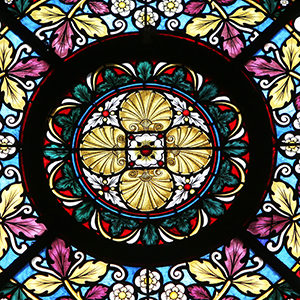Priest Fears Gays in Ranks Pose Threat to Church
Joe Fitzgerald, Columnist
The Boston Herald
Wednesday, March 6, 2002
He’d just completed a funeral Mass at the bustling parish over which he presides, and now, moments later, removing his collar, that pastoral demeanor quickly vanished, giving way to a bristling anger he made no effort to conceal.
The priesthood hadn’t been his first vocational choice, but it continued tugging at his heart in the corporate world until he finally yielded, entering seminary a few years older than most of his colleagues.
To look at him today, well-established in his calling, riding a wave of personal popularity, few would guess how close he came to missing it all, to almost throwing in the towel prior to his ordination.
“Thanks for returning my call,” he said. “I have a take on what’s happening now, something no one else seems anxious to get into, including the people in your business whom I’m angry at, too.”
“The papers keep talking about pedophilia. That’s the wrong word. The real issue here is homosexuality. It’s usually heterosexuals who are pedophiles, which is a psychological disorder that has something to do with arrested development, sending them back to an age where they last felt comfortable, identifying with someone who reminds them of themselves.”
“Where are you getting this from?” he was asked.
“From friends who are psychologists. John Geoghan? Sure, he was a pedophile. But of all the guys whose names we’re reading now, no more than a couple were pedophiles, a percentage probably consistent with the general population.”
“The majority of these victims were not prepubescent; they were young teens, so it had nothing to do with pedophilia. It’s technically called ephebophilia, which is almost exclusively homosexual, and it isn’t about comfort; it’s about sex.”
“The media don’t like talking about this because, by and large, they have come down on the side of gay rights, the advancement of the gay agenda, so there would be an uncomfortability because, again and again, gays are saying, ‘We’re no threat to children; that’s why we should be Boy Scout leaders, why we should be teachers, why we should be able to adopt.’ That’s always their justification for interactions with young people.”
“Father,” he was assured, “you’ll be branded a hater.”
“I know, so please make sure I’m well-disguised, though if I said all of this in a homily I think people in this parish would be pretty cool with it. But Lake Street wouldn’t be too happy. The problem is, there’s a subculture of gay priests and everyone knows it. I went through seminary with a lot of them and got hit on. And when I reported it, I was harassed to a point where, emotionally, it was very difficult to get ordained. I’m not the only one who had to fight to get through it; I know guys who left because of it.”
“It was clear there was a cabal tacitly saying, ‘Don’t bother reporting this stuff.’ You wouldn’t believe the self-justifications, like, ‘Well, celibacy only applies to not getting married, so since we’re not getting married we can do whatever we want.’ It was horrible, with a lot of intimidation, but I stayed because I felt this was what God was calling me to do; besides, if I’d walked, they’d have won.”
“Why are you telling me all this?” he was asked.
“Because somebody has to talk about the elephant in the middle of our room. But mostly because I’m angry, not just for myself, but for friends of mine who are feeling besmirched, too. Believe me, there are wonderful priests throughout this archdiocese, celibate, faithful, loving the Church and loving God’s people.The Church is embarrassed by this, and also concerned that if too many are weeded out there’ll be a crisis in our work force because we’re due to lose 70 to 80 guys through retirement in the next few years. My personal feeling is, I don’t care; we should stand up and be counted, reaffirming the authentic faith. If this element isn’t rooted out, we’re going to see reoccurrences. Vocations will come back; God will take care of that.”
Fearing recrimination, he was asked why he doesn’t rally those colleagues he claims to represent, perhaps issuing a joint statement, since there’s strength in numbers?
“That may happen,” he replied. “I’m touching base with many of them because we know what needs to be said. But right now I just don’t know what to do.”

